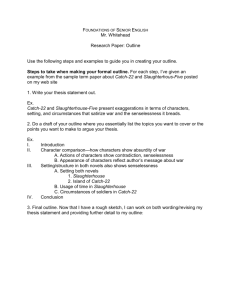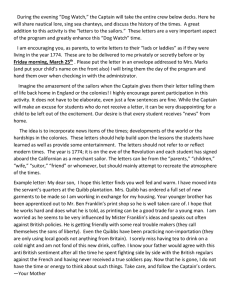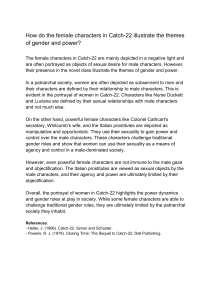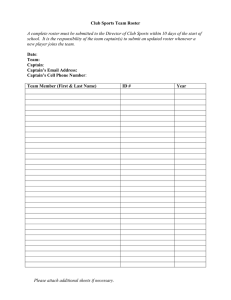How does Captain Black exemplify the unethical nature of power in Catch-22
advertisement
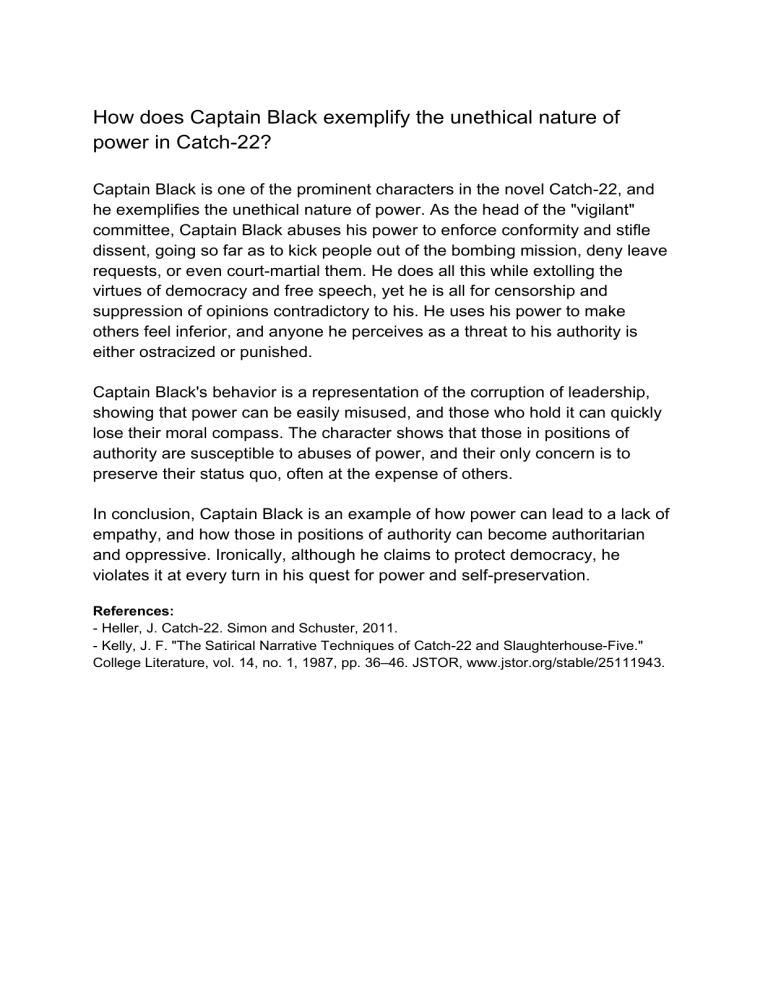
How does Captain Black exemplify the unethical nature of power in Catch-22? Captain Black is one of the prominent characters in the novel Catch-22, and he exemplifies the unethical nature of power. As the head of the "vigilant" committee, Captain Black abuses his power to enforce conformity and stifle dissent, going so far as to kick people out of the bombing mission, deny leave requests, or even court-martial them. He does all this while extolling the virtues of democracy and free speech, yet he is all for censorship and suppression of opinions contradictory to his. He uses his power to make others feel inferior, and anyone he perceives as a threat to his authority is either ostracized or punished. Captain Black's behavior is a representation of the corruption of leadership, showing that power can be easily misused, and those who hold it can quickly lose their moral compass. The character shows that those in positions of authority are susceptible to abuses of power, and their only concern is to preserve their status quo, often at the expense of others. In conclusion, Captain Black is an example of how power can lead to a lack of empathy, and how those in positions of authority can become authoritarian and oppressive. Ironically, although he claims to protect democracy, he violates it at every turn in his quest for power and self-preservation. References: - Heller, J. Catch-22. Simon and Schuster, 2011. - Kelly, J. F. "The Satirical Narrative Techniques of Catch-22 and Slaughterhouse-Five." College Literature, vol. 14, no. 1, 1987, pp. 36–46. JSTOR, www.jstor.org/stable/25111943.
